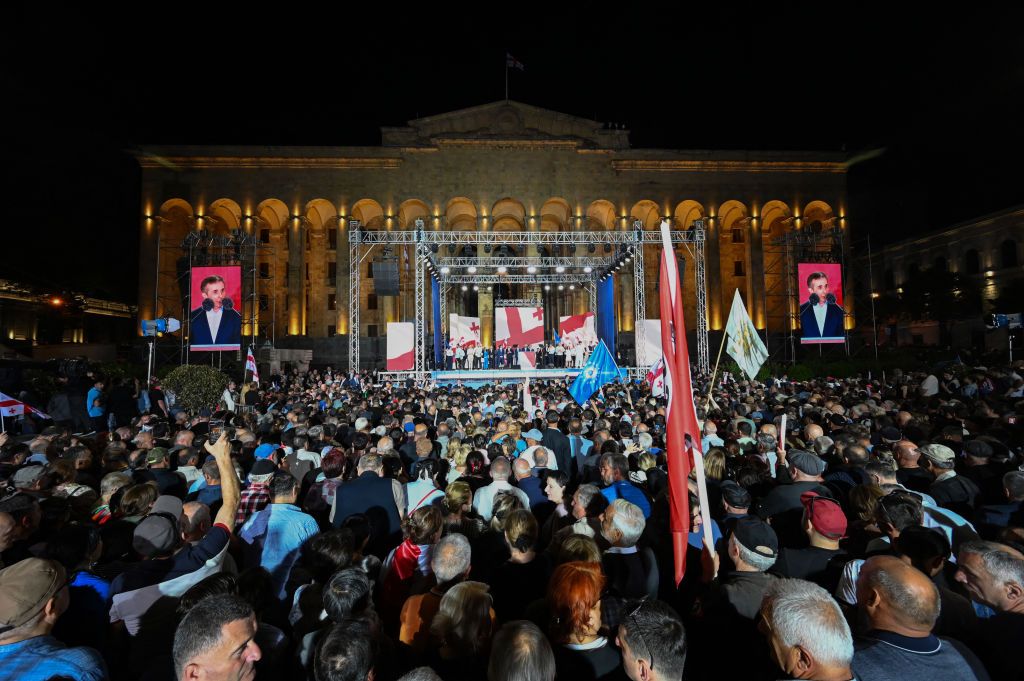Georgian PM refuses to visit US due to condition regarding 'foreign agents' law

Georgian Prime Minister Irakli Kobakhidze will not travel to the U.S. because he was invited under the condition that Tbilisi suspend discussions on the controversial "foreign agents" law in parliament, the Georgian Foreign Ministry said on May 2.
The statement came after U.S. Ambassador to Tbilisi Robin Dunnigan said that Georgian officials had declined an invitation to the U.S. to discuss strategic partnership and Washington's assistance.
The ministry said that the invitation for Kobakhidze contained a clause to temporarily suspend consideration of the "foreign agents" draft law.
The ruling Georgian Dream party recently reintroduced the legislation in parliament, renaming it a bill on the "transparency of foreign influence" but keeping the intent of the previous law essentially identical.
The bill, which must be passed in three readings before it becomes law, would require organizations that receive foreign funding to be labeled as "foreign agents." The law mirrors repressive Russian laws used to crack down on Kremlin regime critics, and is popularly referred to in Georgia as the "Russian law."
"Conducting the visit with reservations is at odds with the spirit of partnership, which should be based on mutual respect and mutual trust,” the ministry said, adding that Dunnigan received “a detailed explanation.”
For the past two weeks, thousands of protesters have gathered nightly in front of the Georgian parliament building in Tbilisi.
Georgian police violently attempted to disperse a demonstration in opposition to the "foreign agents" law on April 30 and May 1. At least eight protesters were reportedly injured.
A similar bill was retracted in 2023 following mass protests. EU officials have previously indicated that the enactment of the law would negatively impact Georgia's prospects for EU membership.
The European Parliament passed a resolution condemning the "foreign agents" law on April 25.














